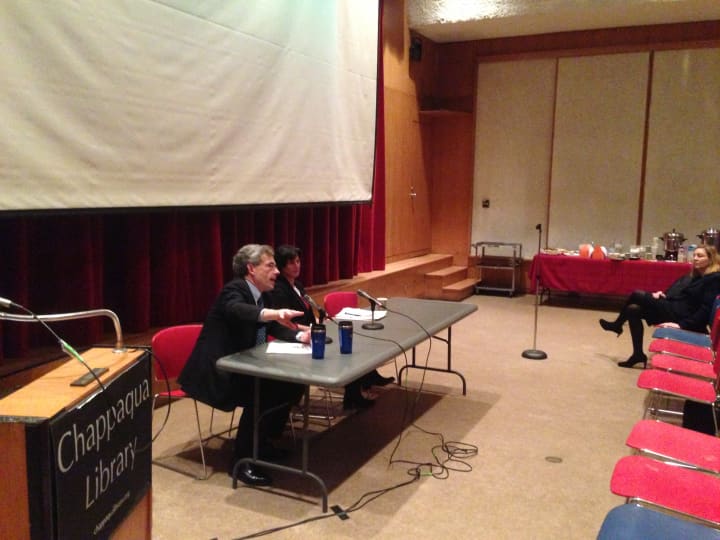That was the lesson given at Wednesday night’s forum in the Chappaqua Library theater on rising sea levels.
Co-sponsored by the League of Women Voters and the Chappaqua Library, the presentation was led by New Castle resident Professor Michael Gerrard of Columbia Law School and Robi Schlaff, a New Castle resident who chaired the state Sea Level Rise Task Force Steering Committee.
Gerrard, also the director of the Center for Climate Change Law at Columbia, focused on the effects greenhouse gases have on our climate. He also highlighted our energy-efficient legislation — or lack thereof.
He said, “2012 was far and away the warmest year in United State history. As you can see, the more greenhouse gases we use, the warmer our country gets.”
Gerrard stressed that, until the right legislation changes are made, the chance of seeing a meaningful change in this trend is "approximately zero."
“The last time we’ve passed any major, important environmental legislation was 1990,” he said. “We are frozen in time.”
If the country’s stance on environmental legislation is frozen, it’s not because of recent temperatures.
The past year recorded 362 record highs in the United States and no record lows, Gerrard said. Those numbers helped contribute to the lowest amount of sea ice ever recorded, leading to higher sea levels.
Schlaff’s portion of the presentation dealt with higher sea level adaptation. If we can’t stop it, how do we adapt?
Factors such as changing the way we build new infrastructures in vulnerable locations, evaluating public health risks, raising public awareness, emphasizing natural flood protection systems and designing streets conducive to flooding are all environmental engineering adjustments that need to considered, Schlaff said.
Decision makers in New York State need to be especially aware, as 62 percent of the state’s population lives in coastal areas, including Westchester, according to a report dated Dec. 31, 2010.
New Castle decision makers appear to be a step ahead of their New York state peers. As the first town to sign on as a “Climate Smart Community,” New Castle's town board and residents have shown their environmental awareness.
“New Castle is absolutely a leader in this state on these issues,” said Schlaff.
New Castle Town Supervisor Susan Carpenter and Town Administrator Penny Paderewski were in attendance, both as town employees and residents.
“I’m here tonight as a resident, but I’m wearing two hats” said Paderewski. “I’m also here to gather information to help me do my job better.”
Click here to follow Daily Voice Chappaqua and receive free news updates.


